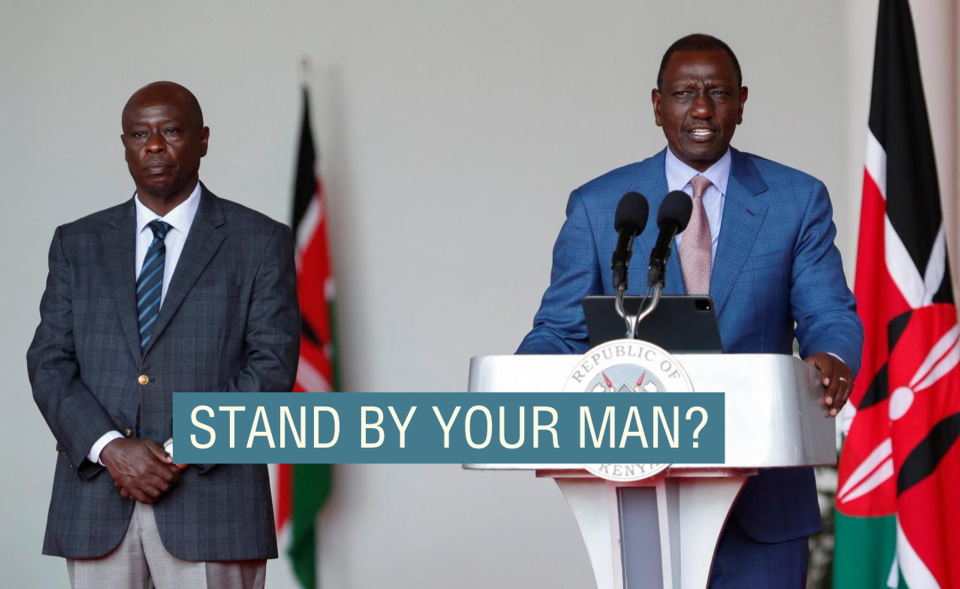The News
NAIROBI — The future of Kenya’s deputy president, Rigathi Gachagua, hangs in the balance after Kenya’s senate confirmed on Wednesday that it will investigate an impeachment trial against him. It followed a vote on Tuesday evening in the National Assembly to impeach the country’s second in command.
Gachagua, 59, was put in the dock to defend himself against 11 charges including allegations of gross violation of the constitution, undermining President William Ruto, irregular acquisition of wealth, attacking a judge publicly, and stirring ethnic tensions. He has previously refuted all allegations against him and termed them political propaganda.
Know More
In the event that the motion sails through the senate and is upheld by the court, the vacancy will be filled within fourteen days, per the East African nation’s constitution. The deputy president, who already said he would “fight to the end” including in the Supreme Court if need be, will be at liberty to appeal the Senate’s decision should he find it unfavorable.
“Kenya is in uncharted waters right now and the process is going to take a long time before the deputy president can be out of office,” Dan Okatch, an advocate of the High Court and governance expert based in Nairobi told Semafor Africa. He maintained that the deputy president Rigathi Gachagua has the court option, which means he would likely continue holding the office even though the motion to impeach him goes through.
“We are staring at the possibility of a long season of politicking, as Gachagua will definitely seek to expand his support base and fight against his removal from office — the outcome of which process will only serve to intensify the already simmering political tensions,” he added.
Step Back


Gachagua, who said in a recent interview said that if the motion was tabled in parliament meant that the president had sanctioned it, had also complained of being blocked from accessing the president’s diary, which made it impossible to align his schedule with Ruto’s. He said he had “read some mischief”, accusing the president’s handlers of being behind his tribulations.
Before becoming president, William Ruto made a promise to defend his deputy against the kind of political persecution he believed he had endured under the former President Uhuru Kenyatta’s administration. Three years later as president, Ruto is yet to publicly comment on the ongoing impeachment proceedings against his deputy, raising further questions on the state of their working relationship.
Muchira’s view
The move by the country’s 13th Parliament to impeach the deputy president is a further proof to the already widening cracks in the executive, and the ruling Kenya Kwanza coalition. Gachagua, who in a last-ditch attempt filed more than 10 petitions in court in a now failed bid to quash the impeachment motion last week, becomes the first state official to face impeachment under Kenya’s constitution promulgated in 2010, making his case unprecedented.
But what is not to be missed is the political gamble the ruling class has taken, which could possibly change the country’s trajectory forever. Gachagua hails from the Kikuyu community — the country’s largest ethnic group — which played a significant role in bringing the current administration to power in 2022.
While some say Gachagua’s replacement should come from the region to calm the already rising public disquiet about his removal from power, it remains to be seen whether President William Ruto will intervene to turn things around in favor of his deputy.







